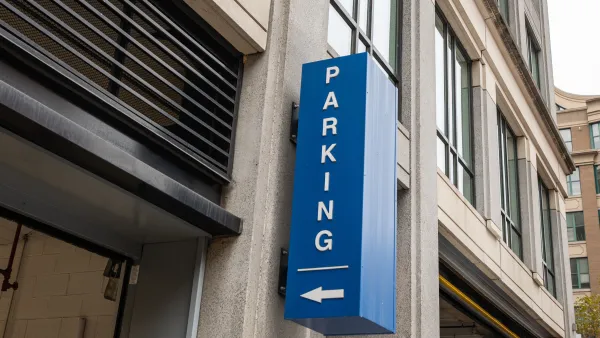Minneapolis and St. Paul both eliminated parking minimums, paving the way for less parking and more housing.

In an article originally published in Minnesota Reformer and reposted on Next City, Zak Yudhishthu outlines the Twin Cities’ success with parking reform.
Since St. Paul and Minneapolis voted to eliminate minimum parking requirements from their zoning codes, Minneapolis has seen less parking built and increased housing affordability. “The reduction in average parking spot per unit obscures an equally remarkable shift in the whole distribution of parking-unit ratios in Minneapolis. While some apartment developers have still opted to build relatively high quantities of parking, there’s been a rise in apartments with very little parking, or even none at all.”
The same type of data isn’t available for St. Paul, but anecdotal evidence shows that developers are taking advantage of the new rules to reduce the number of parking spots they build. In one case, a developer changed the design of a building from 91 housing units and 88 parking spots to 114 housing units and 82 parking spots. “More homes, less parking—and no need for a parking variance.”
While these results are far from radical, they indicate a positive trend that “reflect[s] a smart change that will improve the places that we live in,” Yudhishthu writes.
FULL STORY: Ending Minimum Parking Requirements Was A Policy Win For The Twin Cities

Analysis: Cybertruck Fatality Rate Far Exceeds That of Ford Pinto
The Tesla Cybertruck was recalled seven times last year.

National Parks Layoffs Will Cause Communities to Lose Billions
Thousands of essential park workers were laid off this week, just before the busy spring break season.

Retro-silient?: America’s First “Eco-burb,” The Woodlands Turns 50
A master-planned community north of Houston offers lessons on green infrastructure and resilient design, but falls short of its founder’s lofty affordability and walkability goals.

Test News Post 1
This is a summary

Analysis: Cybertruck Fatality Rate Far Exceeds That of Ford Pinto
The Tesla Cybertruck was recalled seven times last year.

Test News Headline 46
Test for the image on the front page.
Urban Design for Planners 1: Software Tools
This six-course series explores essential urban design concepts using open source software and equips planners with the tools they need to participate fully in the urban design process.
Planning for Universal Design
Learn the tools for implementing Universal Design in planning regulations.
EMC Planning Group, Inc.
Planetizen
Planetizen
Mpact (formerly Rail~Volution)
Great Falls Development Authority, Inc.
HUDs Office of Policy Development and Research
NYU Wagner Graduate School of Public Service




























